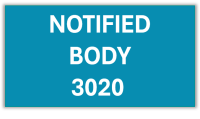Materials used to manufacture the face masks and/or textile protective masks must withstand handling and wear throughout their life. These face masks show a certain barrier effect depending on material from which they are made and on correct way to wear them. The face masks play an important role in controlling the epidemic or pandemic by reducing the spread of infections.
They can thus provide a certain level of environmental protection in the vicinity of infected persons, protection against larger droplets contaminated with pathogens excluded by coughing and sneezing and/or protection against infection from potentially contaminated hands coming into accidental contact with the face.
Biocompatibility of properties of individual materials, which come into direct contact with the human skin of its user, must be taken into account when selecting materials for the production of face masks. It must be known whether these materials cause irritation, allergenic effects or other toxic effects. Therefore, face masks must be approached in such a way that any product placed on the market or otherwise supplied or made available to consumers ensures a high level of consumer protection and does not pose a risk to health and safety.
Face masks, and/or textile protective masks are not included in the scope of legislation about personal protective equipment of the Regulation (EU) 2016/425, which covers PPE for respiratory protection, more precisely FFP filter face half masks with FFP1-FFP3 protection levels, which must meet specific requirements of the standard EN 149+A1 and must be CE marked. FFP filter face half masks protect healthcare professionals from possible infections and airborne pathogens spread by patients and persons in need of care.
Textile protective masks are nor subject to the Regulation (EU) 2017/745 on medical devices, which covers surgical disposable masks with the obligation to meet requirements of the standard EN 14683. These surgical disposable masks protect patients and persons in need of care from possible pathogens that may be spread by healthcare professionals during treatment.
Textile protective masks are covered by the Directive 2001/95/EC of the European Parliament and of the Council on general product safety. Independent certification is performed in accordance with valid safety criteria specified in the standard STN 80 0055 „Textiles. Textile and clothing products. Technical requirements and test methods“ as well as in the Regulation (EC) No. 1907/2006 of the European Parliament and of the Council concerning the Registration, Evaluation, Authorisation and Restriction of Chemicals (REACH), in which the maximum permitted concentrations of harmful chemicals that may potentially be present in textile products are defined.
In order to guarantee the efficiency and safety of textile protective masks, basic decisive laboratory tests are required.
In the acredited laboratories of the company VÚTCH-CHEMITEX, spol. s r.o. it is possible to perform comprehensive analysis for health safety of textile materials, used to manufacture textile protective masks even with a possibility to issue OEKO-TEX® certificate in accordance with the Standard 100 by OEKO-TEX®. The accredited tests such as determination of formaldehyde, extractable heavy metals, pentachlorophenol and chorinated phenols, organotin compounds, polycyclic aromatic hydrocarbons, carcinogenic arylamines, carcinogenic dyestuffs, allergenic dyestuffs and pesticides can be performed in the accredited analytical and environmental laboratory.
We perform accredited colouristic tests of coloured textile protective masks for determination of colour fastness to acidic and alkaline perspiration, dry and wet rubbing.
The trend of the current production of textile protective masks points to the growing interest of users and/or consumers in textile protective masks with antibacterial treatment.
We perform accredited test for determination of antibacterial activity of textile protective masks in accordance with the standard AATCC Test Method 100 in the accredited laboratory for evaluation of antibacterial acitivity. This test method provides a quantitative procedure for comparing and evaluating degree of antibacterial activity after 24 hours exposure to test bacteria, such as Staphylococcus aureus and/or Klebsiella pneumoniae, on a test sample.
Besides, we perform evaluation of antibacterial activity of textile protective masks in accordance with the ASTM E 2149-13a standard method for assessment of the antimicrobial activity under dynamic contact conditions. The number of viable organisms from the suspension is determined and the percentage reduction is calculated by comparing retrievals from appropriate controls. The bacterium Escherichia coli is used for testing in this case.
The antibacterial agent is applied directly to the spinning mass or on the fibre surface using wet process which is not a permanent finish. As manufacturers of the textile protective masks state in most cases in the accompanying materials to the product that they are designed for repeated use, it is very important to test antibacterial efficiency of the textile protective masks also after repeated washing, drying and ironing cycles performed according to the recommended instructions.
Besides the above-mention properties of textile protective masks we evaluate in our accredited textile laboratory and laboratory for flammability also durability of the products after repeated washing, drying and ironing performed in line with the recommended care symbols according to STN EN ISO 6330 which specifies domestic washing and drying procedures of textiles, textile and clothing products. Special requirements include also determination of the permeability of textile protective masks to air performed in accordance with STN EN ISO 9237.






